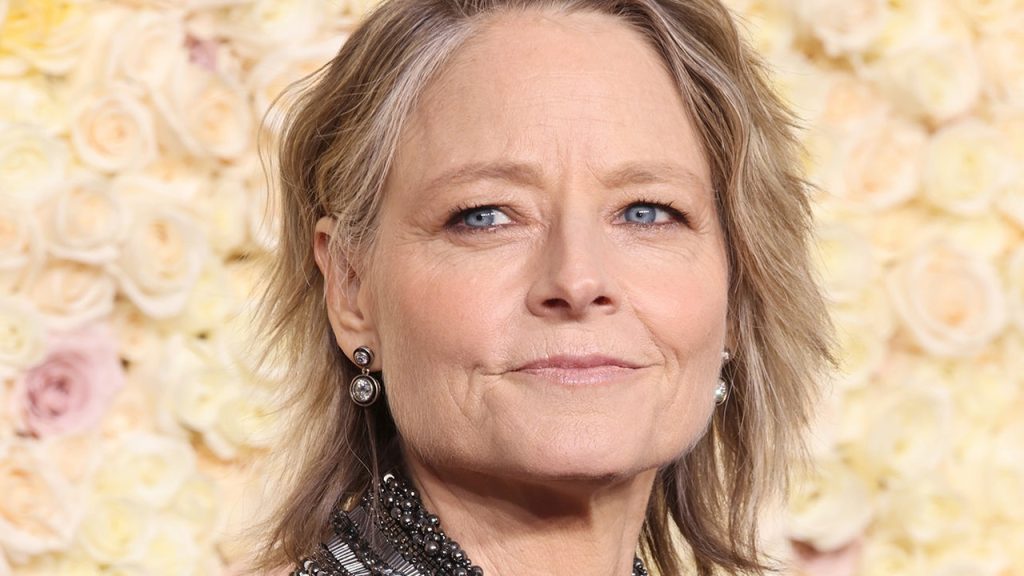Jodie Foster walks into the room smiling. It’s something she has learned to do over her decades of stardom: to beam at strangers and let them ask her searching questions. She wears a kind of invisible armor over her elegant white shirt, understandable for someone who has dealt with more than her (or anyone’s) fair share of creeps and stalkers. I don’t quite fall into either of those categories, though I have been watching Foster for as long as I can remember, starting with movies like Freaky Friday and Candleshoe and aging up along with her.
She’s had a career any actor would dream of: her first Oscar nomination at age 14, her directorial debut before the age of 40, and a Cecil B. DeMille lifetime achievement award at 50. Foster’s radiant performance in last year’s Nyad has landed her more noms. And that’s just an appetizer for her riveting role in the new season of the HBO series True Detective: Night Country, in which she plays Liz Danvers, a gruff “Alaskan Karen” who is police chief of the icy fictional town of Ennis. Danvers and officer Evangeline Navarro (former boxer Kali Reis) find themselves entangled in a mystical mystery that ties together the murder of an Indigenous woman and the disappearance of eight male scientists from a climate change research station.
Courtesy of HBO.
Foster never expected to be doing any of this at the age of 61. Her manager-mother convinced her that her Hollywood career would be washed up at 18, and, later, that directing was the wrong career move. “She had fear, so that was what she gave me,” Foster says now, four years after her mother’s death. That anxiety never seems to have quite dissipated. Yet sitting in front of me in a West Hollywood hotel room, Foster seems serene and excited to talk about her spiritual experience on True Detective, playing an out lesbian in Nyad—and why she’s happy she was turned down for the lead part in The Blue Lagoon.
Vanity Fair: Before I walked in here, I was thinking about how I grew up watching you play tough, smart child and teen characters in movies from Bugsy Malone to Foxes that were very different from most of the roles out there. They really created a space in the 1970s for a different kind of girlhood onscreen.
Jodie Foster: I guess I got lucky that I was the face of a tomboy girl, right? We all knew they existed but they just weren’t onscreen.
At what point did you start thinking about yourself as someone who could shape your career and make choices?
My mom did that for me. My mom, who was an amazing woman, had been a publicist when she was young. She was from a pre-feminist era and she didn’t have a lot of faith in her own abilities in some ways. So I think she kind of vicariously got me to do that. She was very clear: You will be respected, you will have this type of career. So when the Brat Pack [came along], for example, I didn’t do any of those movies.
I didn’t really think about my career until after the Oscar nomination [for Taxi Driver] when I was 14. And she said that my career would be over by the time I was 18. She’d always say to me, what are you going to be when you grow up? A doctor, a lawyer, a politician? So when I went to college, she sold her house and moved into a small place. We were ready to say, Jodie will probably never work again. I did movies while I was in college to make money. I thought, I’ll do this until they tell me I’m not going to do this anymore. Then I got out of college and figured, I’ll just give it a last hurrah because I thought I was gonna go to grad school. And then it all snowballed and after The Accused, I said: I guess I’m not going to grad school!
Winning an Oscar for The Accused was a good sign your acting career wasn’t over. But I can’t believe how pragmatically you approached it all.

